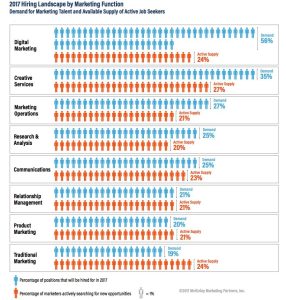Have you ever considered becoming an English teacher in South Korea? Every year many people from across the world come to South Korea to teach English to school aged students. However, there is a wide range of teaching opportunities available to native English speakers that, although not as publicized, can be an ideal option for many people wanting to teach in South Korea. Teaching business English is a great example of this, as teaching at Korean corporations can take you to new places across the country and allow you the opportunity of getting to work across many diverse companies while meeting lots of new people.
For business English tutoring, classes are typically held at corporate offices, so lessons take place during the day as well as having small class sizes which can start from one-on-one classes to up to 10 students at a time. Teaching business English is also a great option if you want to work on more of a freelance basis instead of committing to a school’s yearlong contract. Through this blog post we will explore the requirements, curriculum, and salary of becoming an English teacher for Korean corporations as well as the range of benefits it can provide.

Requirements:
Large international corporations are a good place to find work for teaching business English to their employees as these companies are always looking to expand, becoming more global to improve their relationships with their foreign company partners abroad. For finding jobs like this you will need to build up a portfolio or have previous experience teaching English at any level to establish yourself as a reliable option as an English teacher. This can range from teaching English to students online or from having previous experience teaching in a school and or an academy in South Korea. If a company is sponsoring your visa, the general requirements to teach in South Korea are to have a university degree and to have completed TEFL training, though these requirements are subject to change and companies might request more documents before you can begin teaching for them.
Looking for business related English teacher jobs can be challenging if you are not living in Korea or are unable to speak Korean. Unlike with school based English teaching, there aren’t many companies set up to help partner business English teachers a placement under Korean businesses as the jobs are usually on a short-term basis. When looking for work, using Korean job searching websites are a good and reliable option if you have Korean language knowledge.
These include:
1. Job Korea (잡코리아 in Hangul)
2. Saramin (사람인 in Hangul)
3. Incruit (인크루트 in Hangul)
4. Career (커리어 in Hangul)
5. Kotra Job Fair (코트라 글로벌일자리사업단 in Hangul)
6. Alba cheonguk (알바천국 in Hangul)
7. Worknet (워크넷 in Hangul)
8. Work Plus (교용복지플러스세터 in Hangul)
9. Albamon (알바몬 in Hangul)
10. Xpatjobs

Curriculum:
As a business English teacher, you might not work for any particular company or corporation. Due to this, you most likely will have the freedom to create your own curriculum for Korean employees to follow when learning English. Companies will usually provide their TEFL tutors with general guidance for the type of English they would like their English teachers to focus on. Korean companies often hire English teachers for their employees when they are preparing for work trips abroad or any large international events, so teaching English that will help employees in the type of situations that they will be preparing for is a great place to start when creating class curriculums.
When creating a curriculum for employees, key examples of the types of content to teach includes:
- Frequently used business- related English vocabulary.
- Things to say and not say in the English-speaking workplace.
- English vocabulary for completing general office tasks and using office equipment.
- Learning the names of company/factory supplies/items.
- Formal English greetings.
- Conversational English for bonding with colleagues in and outside of the workplace
- Making speeches and PowerPoint presentations for an English-speaking audience.
- Writing emails and letters in English.
- Unique business expressions and phrases.
- English phrases for any emergency situations that could arise in the workplace.
- How to explain factory processes in English.
- Travel related English vocabulary for work trips abroad.

Salary:
For business foreign language teachers in South Korea, wages are typically 2-3 times higher than a school based TEFL tutor. The downside of this though is that business English teachers don’t typically get hired fulltime, they are most likely hired sporadically by different companies so it can be very challenging to get visa sponsorship for this specific type of language teaching. Despite this, there are financial benefits to being this form of English teacher as large companies and corporations are private, meaning that they can pay what they would like to for their English tutors, which is usually at a very competitive rate. In this type of teaching there is rarely a set hourly wage for teachers and companies will usually pay you a set fee for your time teaching their employees.

Overall, teaching business English in South Korea is a great option for those who want to teach towards adults in a more relaxed, non-school-related setting. As you can tutor towards specific work events for a company or any work trips abroad, teaching English in this way can be a lot more freeing than teaching English to children in schools or academies. Tailored learning can also be more rewarding as adult students will develop quicker as a result of employees wanting to gain a new skill that can assist them with their work. In addition to this, without the need for a strict curriculum to follow, you can enjoy the pace of teaching employees to meet their specific needs and goals for language learning in the workplace. Teaching business English in South Korea is a great option if you want to have a mature and unique approach to teaching abroad and we hope that from the content covered in this blog post that you will have the confidence to make the best decision for your teaching journey.





